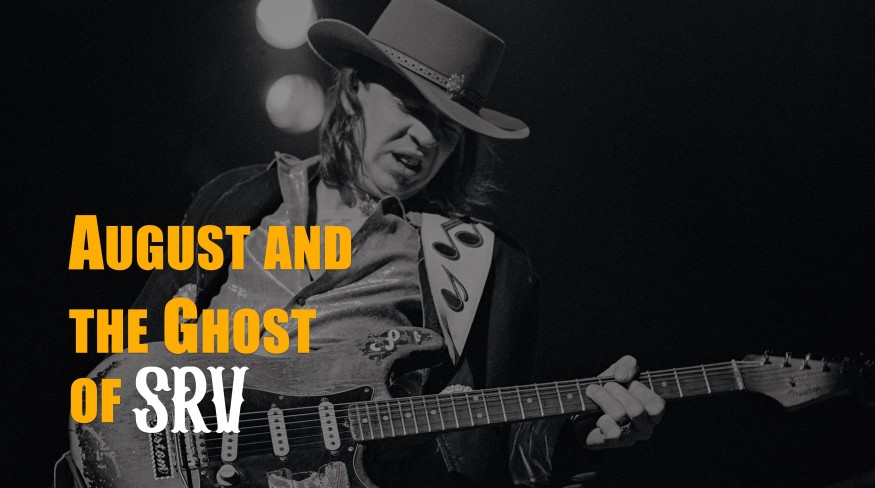
August 26, 2024 - 3459 views
Growing up, I often heard my mother recount the moment she learned of President John F. Kennedy's death. While many might balk at my comparison, two events stir similar memories for me: the deaths of John Lennon and Stevie Ray Vaughan. The latter, especially, revisits me every August, bringing back a flood of emotions. I vividly remember the moment I learned of Vaughan's passing. It was late morning August 27th, 1990 and like every day, I went to the kitchen, grabbed a bowl and a box of cereal—Frosted Flakes, for those curious. But before I could even pour the cereal, the headline on the morning paper caught my eye: "Crash Kills Stevie Ray Vaughan."
That moment of disbelief hit hard. As the reality sank in, everything around me seemed to change—the air, the colors in the room. As a young guitarist and fan of Vaughan, my world felt different. Now, some might say, "Dean, you can't compare the impact of a President's death to that of a guitarist!" But at 19, music was my world. In fact one of my teenage girlfriends had told me I’d never find love because I paid more attention to my guitars than to her.
Recently, after hearing me wax poetic about Stevie Ray Vaughan on SiriusXM, a listener reached out to me on Facebook, asking why so many people still feel deeply about his death. To her, as tragic as it may have been, he was just another blues guitarist like many others. Even my wife, early in our relationship, asked me to explain my love for Vaughan—claiming that she just didn’t get it.
What I explained to our listener, and similarly to my wife, was Vaughan's unique ability to convey emotion through his instrument. In an era when guitar heroes like Eddie Van Halen, Yngwie Malmsteen, George Lynch, Steve Lynch, Adrian Vandenberg, and others dazzled with fretboard acrobatics, Vaughan stood out. He lived largely within the pentatonic scales, yet he demonstrated that it wasn’t about how fast or complex you played, but how much soul you infused into every note.
Vaughan could play a single note and sustain it, picking it with varying dynamics and vibrato. He would hold that note so long that you’d go from thinking, "That's cool," to wondering, "When is he going to do something else?" Eventually, you’d lock in with his emotions and reach a moment where you might say, "I think I found religion." SRV had a way of playing that made you lose focus on whatever you were doing and instead concentrate solely on him and his music.
When my wife asked me to help her understand Vaughan, I told her to close her eyes and played his Hendrix cover of "Little Wing." Before pressing play, I said, "As you listen to this song, sync your breathing with the dynamics of his playing. Picture the facial expressions he was probably making as he played, and focus on nothing but the music and your breathing." When the song ended, she let out a deep breath. I asked, "Could you see his face?" She replied, "Yes, and now I understand."
There are many great guitarists who perform incredible feats on their instruments, pushing boundaries and showing what’s possible. But few musicians communicate emotion through their instruments the way Stevie Ray Vaughan did. That’s why, every August, the ghost of Stevie Ray Vaughan comes to visit.





Comments(0)